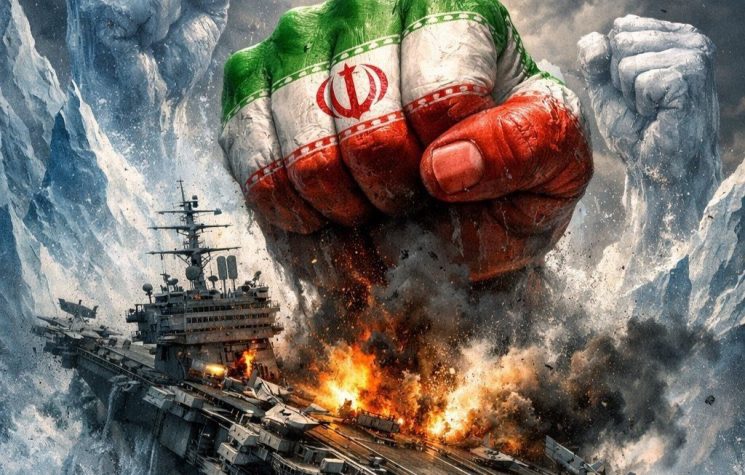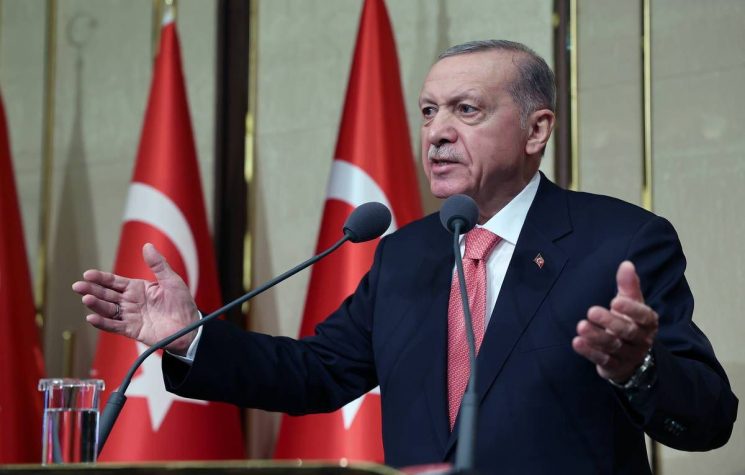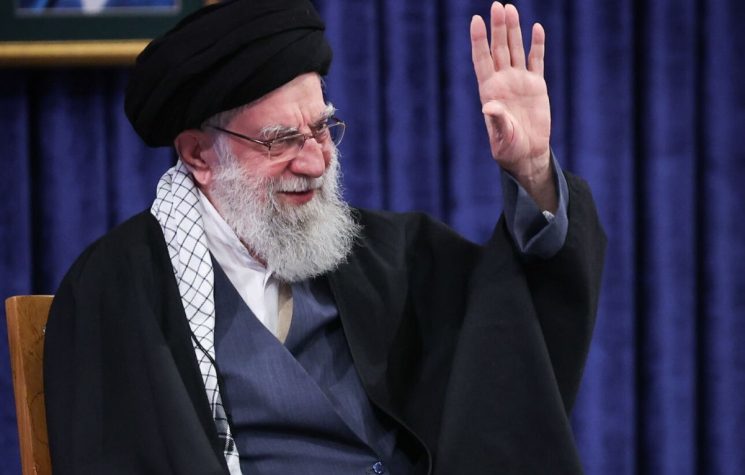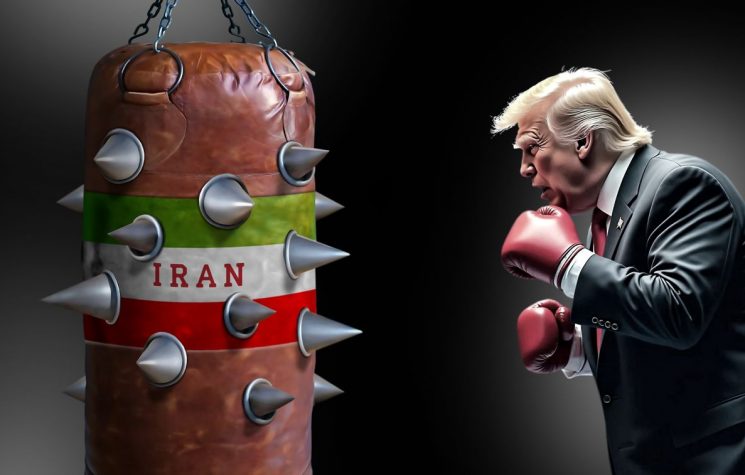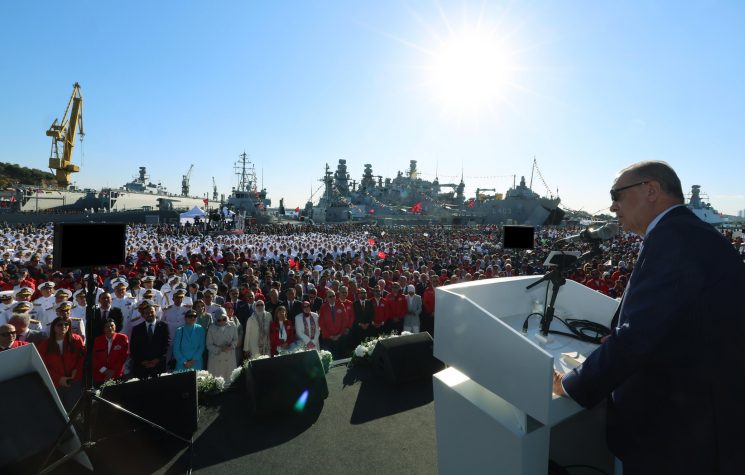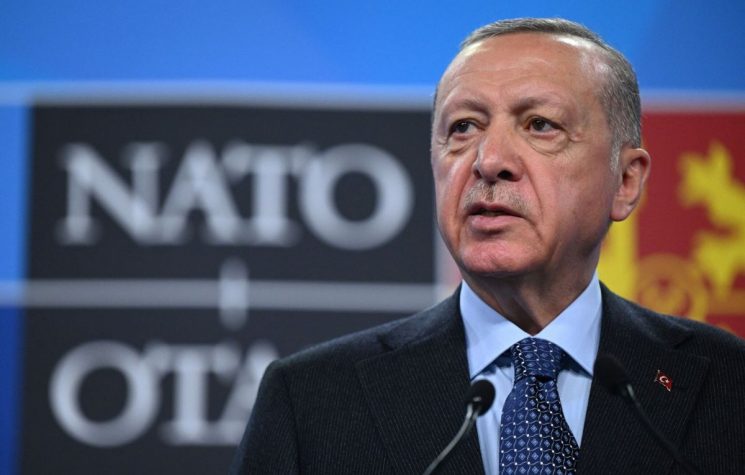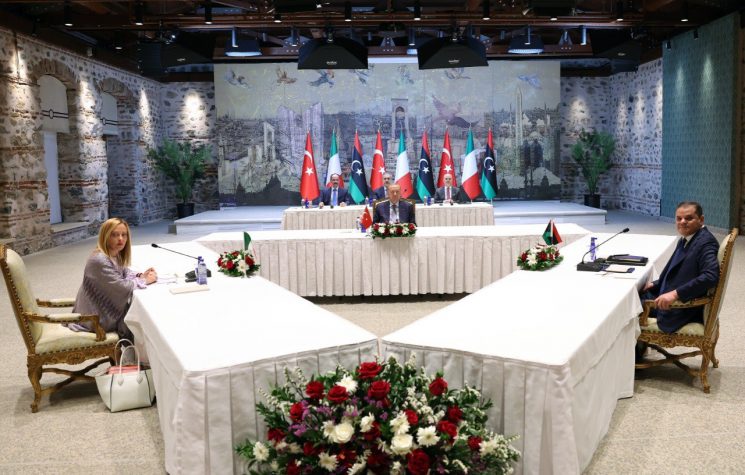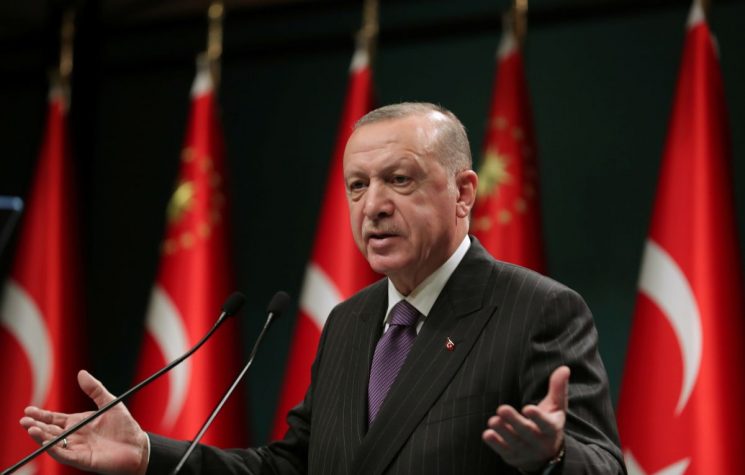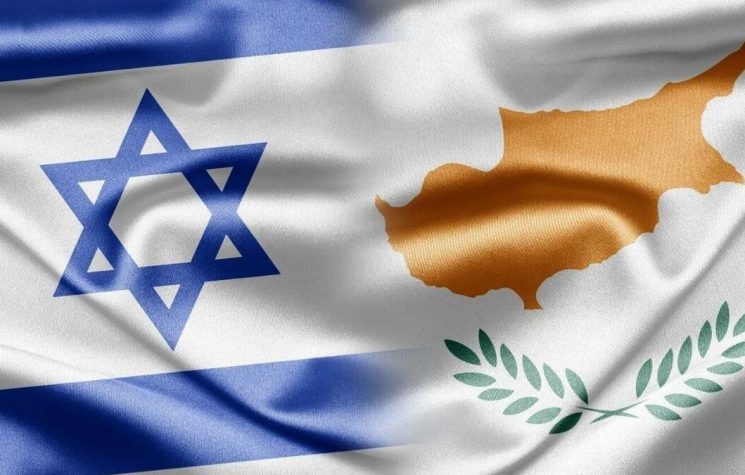Ankara will, by any means necessary, have to halt further Palestinization of Cyprus in order to fight for its very survival, Hadi bin Hurr writes.
Join us on Telegram![]() , Twitter
, Twitter![]() , and VK
, and VK![]() .
.
Contact us: info@strategic-culture.su
Some Turkish media outlets — above all TRT Haber and Aydınlık — announced at the end of August this year that Erdoğan’s 2022 promise to significantly and almost dramatically increase Turkey’s military presence in Northern Cyprus is finally being implemented. More precisely, the reinforcements are to be deployed on the territory of the Turkish Republic of Northern Cyprus (TRNC — in Turkish: Kuzey Kıbrıs Türk Cumhuriyeti), whose sovereignty within the international community is currently recognized only by Türkiye. Nevertheless, this de-facto independent polity — established in 1974 after Türkiye’s military intervention in response to a coup whose aim had been the union of the then-undivided island with Greece — holds observer status in important organizations such as the Organization of Islamic Cooperation and the Economic Cooperation Organization. It also maintains limited bilateral ties and contacts with a number of states, among them Russia (which has opened consular services in the TRNC), Pakistan, Azerbaijan, Germany, and even Greece, which in 2014 hosted a delegation from the northern Cypriot Turkish community.
Media reports claim that the number of Turkish soldiers on Northern Cyprus could very quickly exceed 100,000 from the current figure of roughly 40,000. Of course, the buildup is not limited to manpower: the planned major Turkish military reinforcement on the island is to be accompanied by deliveries of modern hardware — new weapons, combat vehicles, tanks, vessels, aircraft (including drones), plus ammunition and other equipment. The idea is to equip several divisions so that, both technically and organizationally, they become a highly complex and powerful deterrent force that would send a more-than-clear warning to any potential adversaries of Türkiye in the region. By all indications, these reinforcements will not cover only land, air and naval forces; they will also include ultra-modern units specialized in electronic warfare — now indispensable for contemporary combat — and missile units that, among other weapons, will be equipped with ballistic missiles of the Tayfun family (Block 1), which, not entirely coincidentally, could put a number of Israeli cities within range. During the next year the missile maker Roketsan is expected to begin serial production of the far more dangerous Tayfun Block 4, which could also be deployed on Northern Cyprus.
Turkish officials justify this historic decision by Ankara as a forced response to the accelerated militarization of the region, which is making the security situation increasingly complicated day by day. Although there are UK Sovereign Base Areas on Cyprus — Akrotiri and Dhekelia, territories under direct British sovereignty — there is little doubt that Israel represents a growing and highly unpredictable security concern for Türkiye, given Tel Aviv’s steadily closer military cooperation with Greece and with the Greek-Cypriot administration in the south – the Republic of Cyprus, which, unlike the TRNC, enjoys full international recognition and EU membership. According to the Times of Israel, the Zionist state has thereby publicly and openly challenged Turkish control over Northern Cyprus, referring to it without hesitation as an occupation. In addition to the tightening military cooperation between Tel Aviv and Nicosia — which to date represents a still relatively discreet but growing Israeli military presence on the island — Turkish media devote a great deal of attention to a more insidious long-term risk for Türkiye’s security: frenetic investment activity by Israeli investors on the island. This is feared both because it could enable a slow, quiet and soft form of Jewish colonization of Cyprus and because these apparently lawful business ventures might serve as a cover for the intensive development of Israeli intelligence networks on the island.
Over the past four years, the southern, Greek part of Cyprus has seen a dramatic rise in real-estate purchases by Israeli citizens. During this period there have been more than 1,406 property transactions in the Larnaca district, 1,154 in Limassol, and 1,291 in Paphos. Worryingly — according to The Lemkin Institute for Genocide Prevention (LIGP), a multinational non-governmental organization based in the United States that has begun to take an interest in this phenomenon — Israelis have tended to buy large plots containing many buildings and well-developed infrastructure such as resorts, hotel complexes, and other tourist residences. These types of properties are ideal for creating enclosed, relatively self-sufficient communities for future settlers. Another highly indicative fact is that Israeli buyers have shown particular interest in properties near ports and military bases, which could, to some extent, prefigure their future status. Many of these large purchases are made through Cyprus’s Golden Visa program, which grants foreign investors the right to reside in the Republic of Cyprus — and thus in the EU — if they spend at least €300,000 on real estate on the island. The Cypriot portal Politis analyzed the program and concluded that it opens the door for Israeli capital to penetrate the Cypriot economy and gradually subordinate it to its interests. Nevertheless, citizens of southern Cyprus do not seem especially alarmed by these deeply troubling trends. Officials in the Republic of Cyprus believe that the motives of Israeli investors and settlers are purely economic and personal, and that these investments should be viewed as a form of strengthening geopolitical ties with Israel.
Voices calling for caution about the quiet formation of Israeli enclaves that could gradually marginalize the Cypriot native population are rare. Such marginalization might be economic in the short term and, over the long run, could take on significant demographic dimensions. Only some left-wing Cypriot political parties, such as the Progressive Party of Working People (AKEL), have expressed open concern — The Cradle reported on this in July of this year. AKEL’s secretary-general, Stefanos Stefanou, openly claims that a political strategy lies behind the mass Israeli property purchases in southern Cyprus, while denying that his views reflect xenophobia or antisemitism; he insists that the Cypriot government must work to keep Cyprus in the hands of Cypriots. Stefanou’s assertions — which go so far as to speak of an “Israeli occupation” — are supported, by irrefutable on-the-ground evidence showing the formation on the island of large, physically separated and fenced Jewish communities with schools, synagogues, and other facilities. For example, a rather controversial, even notorious, yet powerful and far-reaching global Jewish organization, Chabad-Lubavitch — known for some of its more aggressive outreach methods, internal messianic disputes, and occasional bizarre incidents — established its branch on the southern part of the island in 2003 under the name Chabad of Cyprus. It operates numerous facilities and, by estimates reported in the Times of Israel, serves around 10,000 adherents. Interestingly, Chabad even maintains a presence in the Turkish part of Cyprus. The organization focuses on educational programs and on providing legal and other assistance to Jewish settlers.
The Cradle also reported that in June this year Stefanos Stefanou warned about how Israeli media have been openly reporting a “targeted policy of expansion of Israel in Cyprus.” For example, the Israeli daily Haaretz has recently written about deep Mossad infiltration in Cyprus as if it were an ordinary matter. Theodor Herzl, the founder of modern Zionism, once contemplated Cyprus as a possible base from which to conquer Palestine. Yet it appears that events are unfolding in the opposite direction, and the government of the Republic of Cyprus has every reason to be very concerned, even though, for some reason, it seems complacent in the jaws of the Israeli crocodile that has swum up to its shores. Admittedly, in early 2025 the Cypriot government for the first time took a step that indirectly acknowledged the seriousness of the problem — it tightened the rules for obtaining the Golden Visa — but the data show that this has not slowed Israeli investments or the formation of new Jewish enclaves.
Israeli investments are not confined to the area of southern Cyprus, as some might mistakenly assume — Israeli citizens are also buying properties en masse in northern Cyprus, especially in the Famagusta and İskele districts. It is highly telling that these — it would not be an exaggeration to call them organized — large-scale purchases are carried out not only by holders of Israeli passports but, according to Turkish sources, also by Jews who hold passports from other countries. Nearly two years ago Sabahuttin Ismail, formerly an advisor to TRNC President Rauf Denktaş and private secretary to the prime ministry, reported this to the Turkish public. Ismail also warned that three major North Cypriot companies — Afik Group, Eurocoast Group and Evergreen Developments Group — are in fact owned by Israeli investors who now also hold citizenship of the Turkish Republic of Northern Cyprus (TRNC); and because these firms were treated as domestic companies, they have been able to execute mass land purchases and participate easily in large construction and infrastructure projects. That alarmed TRNC authorities and led them in 2023 to introduce stricter limits intended to stop the mass acquisition of land and other real estate by foreigners — chiefly targeting citizens of Israel as well as Jews holding passports of other countries.
Inevitable parallels can be drawn between the organized Jewish settlement of Palestine and the present large-scale real-estate purchases in Cyprus by Israeli citizens. Modern historical research provides data that — to a greater or lesser extent and as approximate facts — are accepted by Muslim, Israeli, Western and other historians alike. Those data are drawn from official censuses, such as the Ottoman and British counts, as well as from Arab and Jewish statistics, and testify to how the path to the great Palestinian tragedy — the Al-Nakba, which today some describe as having become an open genocide — was smoothed by a strategy deliberately designed to change the ethnic composition of Palestine. When the French baron Edmond James de Rothschild, a fierce proponent of Jewish settlement in Palestine, through his enormous personal donations and other means enabled large land purchases and the arrival of the first Jewish settlers in Palestine, no one could have imagined that this would eventually give rise to a state as aggressive and as expansionist in its ambitions as Israel is today. On the eve of the First World War, Palestine had roughly 674,500 Arabs — of whom 79,700 were Christians, 37,500 Jews and 1,300 Turks. The British census of 1922 shows that the number of Arabs fell to about 662,000, while the Jewish population, thanks to intensive settlement, more than doubled to reach 83,700. According to data from 1931, the Arab population — buoyed by natural increase — rose to 851,100, of whom 91,400 were Christians, while the Jewish population once again roughly doubled through immigration and reached 174,600. At the moment Israel declared independence, having deliberately avoided clearly defining the borders of its state territory, Palestine’s population stood at 1.9 million people, of whom 608,000 were Jews — 3.48 times more than in 1931. Under the United Nations Partition Plan for Palestine of 1947, Jews who constituted only 32% of Palestine’s population were allotted as much as 56.47% of its territory — which was probably a deliberate provocation intended to prompt Arabs to reject this wholly unjust plan, thereby drawing them into a war against a newly declared, heavily armed state of Israel they could not possibly defeat. In the end, Jews — who for centuries in Palestine were on average twenty times fewer than Arabs — seized not only Palestinian land but also their future. The same could happen today to Cypriot Turks and Greeks if they do not awaken and react quickly and decisively.
Of course, Israelis are not interested only in buying real estate or in construction and infrastructure projects; they are also quietly strengthening their military footprint on Cyprus — clear evidence, many argue, that their plans amount to nothing less than taking full control of the entire island. Cunningly, Israel began building that presence by first drawing Cypriots’ interest in its advanced defense systems — systems that are, unsurprisingly, fully compatible with those used by the Israel Defense Forces (IDF). For example, the Republic of Cyprus has purchased advanced integrated air- and missile-defense systems such as the Barak MX. Likewise, Israeli companies like Elbit Systems and Israel Aerospace Industries are actively assisting the southern Cypriot armed forces in modernizing their weaponry. For Israel, this cooperation is not only a lucrative business worth tens of millions of dollars, it also allows for a deeper military presence on the island — a footprint that is already plainly visible, though it has not yet reached the level of large sovereign bases like the British bases at Akrotiri and Dhekelia. Instead, it is limited to operational activities through deliveries of military equipment and the use of Cypriot military facilities.
The IDF and the Cyprus National Guard hold frequent joint military exercises, including naval and air drills. One such multi-day exercise was “Agapinor 2022,” which reportedly involved infantry, special forces, attack helicopters, and the navy, and allegedly simulated operations deep inside Lebanese territory. Israeli intelligence and logistical cooperation with southern Cyprus is also highly developed, and these ties have been trending upward — although, as some Haaretz reports suggest, Mossad conducts many operations on the island independently, without consulting Cypriot hosts. Some outlets have even reported that Israel’s Unit 8200 — an intelligence corps unit of the IDF — opened an elite cyberwarfare center on the island. However, Israel also uses British military facilities on Cyprus. There is a wealth of analytical reporting — from media outlets such as TRT, Middle East Eye, Al Jazeera, Declassified UK, The Guardian, as well as alternative media, anonymous sources, independent researchers, analysts, activists, and even members of parliament — alleging that Israel has used the RAF base at Akrotiri and other British military sites on Cyprus during a number of its operations. Such hypotheses and reports have circulated in media and public debate for a long time, raised not only by left-wing and anti-imperialist activists and analysts sympathetic to Türkiye, but also in the British Parliament, where even MPs have asked questions and initiated public discussions about whether Israel uses British bases for its military operations.
These claims may not be fully proven — which is unsurprising given that they concern highly secret military operations — but it’s undeniable that Israel’s overall activities related to Cyprus reveal a clear and substantial interest in the island. Cyprus could serve as a strategic foothold from which Israel might project military power in the Eastern Mediterranean in a way that would threaten Türkiye more than any other security challenge the country has faced since the proclamation of the Republic on October 29, 1923. If we recall how the British, at the end of their colonial mandate in Palestine — allegedly because of the chaos surrounding their withdrawal — left a large portion of their arms and ammunition to Jewish paramilitary and terrorist organizations such as the Haganah (which later became the Israel “Defense” Forces, IDF), Irgun, Lehi, and Palmach — groups that until shortly before had been ambushing and killing British personnel — then it is not hard to imagine (nor is it an exaggerated theory) that the British could, in the foreseeable future, fairly easily hand over their sovereign military bases on Cyprus, Akrotiri and Dhekelia, to Israel.
That scenario would be a déjà vu of what we already saw in Palestine: Israel moving into territories that the United Kingdom — a colonial power in the long process of decline — abandoned because it no longer had convincing reasons to hold and defend them. It is true that, at present, Akrotiri and Dhekelia are British sovereign territory under the the 1960 Treaties — including the Treaty of Establishment and the Treaty of Guarantee — and that transferring them to Israel outright could be legally far more complicated than ending the British Mandate in Palestine — primarily because of the UK’s NATO membership. Nevertheless, there are no legal obstacles in principle to granting Israel long-term use of those bases, especially since they have been used for many years by other British allies such as the United States and France.
If there really is, as many analysts claim, a covert plan by the collective West to surround Türkiye — a Muslim country that has essentially never been part of that Western world — so that, when the time comes, it could be destroyed if necessary, despite its NATO membership, then it would be convenient for the U.S. and UK to entrust that dirty work to Israel, as they have done before. In that case, the British would likely, and perhaps prudently, withdraw from their Cypriot bases before a large Israeli–Turkish confrontation — which, as some claim, is inevitable and only a matter of time — and hand them entirely to the Israelis. Such a move would literally, overnight, and dramatically change the balance of power in the Eastern Mediterranean in favor of Israel.
The authorities in Ankara are, of course, fully aware of Israel’s intention to implement in Cyprus the same settlement and colonization policy it pursued in Palestine — through soft colonization and the consolidation of its military presence — thereby turning the island into an impregnable fortress in the eastern Mediterranean and part of Greater Israel. That is precisely why the announced dramatic reinforcement of Turkey’s military presence on the island will take place. Since Türkiye cannot count on the government of the Greek Republic of Cyprus to sober up from its infatuation with lucrative Israeli investments and appreciate the threat Israel poses — and since any genuine partnership with Nicosia is therefore impossible — Ankara will be forced to take ever swifter and more energetic measures to protect its own interests and the security of Turks in Cyprus. That could destabilize Cyprus and even rekindle a Turkish–Greek military confrontation there.
The plans of an always-aggressive Israel — which has wholly broken not only with international law and the norms of the global community, but also with basic civilizational standards — anticipate an inevitable confrontation with Türkiye; for that reason Israeli strategists have decided not to wait for that clash to come to their own doorstep, but to prepare for the possibility of striking first — and to do so from Cyprus. In the Associated Press article “Turkey Wary of Israeli Threat Following Airstrike on Hamas in Qatar,” by Andrew Wilks and Abby Sewel, published on September 14, 2025, the Turkish Defense Ministry spokesman, Rear Admiral Zeki Akturk, is quoted warning that Israel would continue with reckless attacks like the one in Doha, and that such behavior would drag the entire region into catastrophe. In Ankara — according to the authors of this text — there is concern that Israel could carry out similar sudden strikes against Türkiye. If that happens, it is quite clear that the United States would without question grant Israel permission for such madness — even though that action would automatically trigger NATO Article 5. To date Israel has been able to justify each of its violations of international law and the territorial sovereignty of other states to the collective West as a “fight against terrorism,” so the chances that NATO would rise to defend Türkiye are approximately zero.
Ankara has long been alarmed both by Israel’s continuous aggression close to its borders and by Israel’s absolute impunity and the unconditional support it receives from the United States for whatever it does — including the genocide in Gaza that has now lasted two full years. Washington treats Muslim nations more than obviously as a racially inferior or semi-human group that, like Qatar, can be humiliated and punished militarily even when they enjoy the formal status of American allies and, in fact, have committed no genuine offense that could justify an Israeli military intervention. Qatar should be the final lesson for Türkiye, a decisive end to a long awakening from the Euro-Atlantic dream — not only because of Israel’s insane bombardment of Doha, but even more because of the sterile and shamefully useless Final Communiqué issued by the Arab-Islamic Emergency Summit in Doha, which, instead of demonstrating Muslim strength and unity that might have given Tel Aviv pause, revealed the irreparable weaknesses of many leaders of the Islamic world and the fact that many of them are, in practice, shameless servants whom Israel keeps firmly on a leash.
Ankara will, by any means necessary, have to halt further Palestinization of Cyprus in order to fight for its very survival. The Turkish Republic of Northern Cyprus must become Turkey’s largest and most powerful base from which Ankara will dictate the rules to Israel rather than the other way around. In this life-and-death struggle with Israel, Türkiye — as we see — will for a long time be unable to rely on the strength of the Arab world or on Islamic unity, nor, for that matter, on NATO. However, if Turkish leadership takes wise and courageous steps, even covertly, Türkiye could count on states such as Russia, China, Iran, Iraq, Pakistan, and many other nations that the collective West has failed to break. Eurasia is only beginning to rise — and that idea could provide Ankara with the foundation for creating entirely new military-political and economic strategic alliances.










